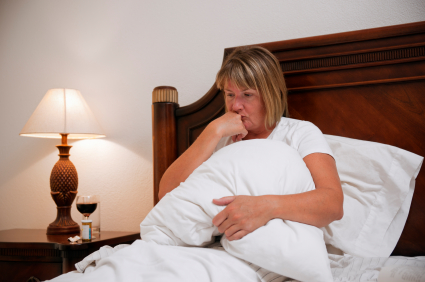
As a supplement to the message I did on anxiety and trust I asked my friend Dr. Jennifer Degler to do a guest post on my blog with her thoughts and observations on the issue of anxiety and Christians.
A psychologist, life coach, author, speaker, wife, and mom, Jennifer is passionate about helping people create healthy, successful relationships. You can find Dr. Jennifer podcasting and blogging about marriage, sex, parenting, friendships, and spiritual and personal growth on the Healthy Relationships Rx website at http://healthyrelationshipsrx.com.
About 20% of the US population has an anxiety disorder. That’s about one in five people, or 40 million adults. If you were allowed to pick your psychological disorder, pick anxiety because it’s very treatable. Not every psychological condition is treatable, but anxiety responds very well to treatment; however, only about 1/3 of suffering anxious people ever seek treatment. If left untreated, anxiety can lead to depression.
When I was in graduate school in the 1980’s, depression was the common cold of mental illness. Now it’s anxiety. Americans live in one of the safest countries in the world, but after the terrorist attacks on 9/11, the anxiety levels of Americans skyrocketed.
I think overexposure to and over-consumption of anxiety-provoking material, like 24/7 scary news stories and increasingly violent movies and video games, has contributed to the rise in anxiety disorders. You would think anxious people wouldn’t watch a lot of news and crime shows, but they tend to be heavy consumers, usually because they are subconsciously watching for what the victim “did wrong” in a misguided effort to keep themselves safe by avoiding similar behaviors. Unfortunately, instead of making them feel safer, overexposure to anxiety-provoking shows and news stories just makes them feel more unsafe and keeps their brains in a hypervigilant state.
Anxiety tricks our brain, and the amygdala in particular, into activating our fight vs. flight response when we aren’t actually in danger. For example, when we watch a scary movie, our brains are tricked into thinking we are in danger even though we are safe in the theater. So our heart pounds, our palms sweat, and we breathe faster—until the movie is over. Then we realize we are safe, and our brain and body calm down.
For chronic worriers or those with an anxiety disorder, worry about the future is the scary movie. Those “What If” worries about an uncertain future hijack the brain, trick it into activating the fight vs. flight response, and cause physical, emotional, and spiritual distress. Once anxious people understand this neural hijacking, they are much less self-condemning of their anxiety and better able to use body-centered techniques to calm their anxious brain.
Here’s my favorite quote to use in conjunction with teaching clients body-centered techniques, such as mindfulness or progressive muscle relaxation, which help them use their five senses to pull their anxious mind back into today.
“Today is mine. Tomorrow is none of my business. If I peer anxiously into the fog of the future, I will strain my spiritual eyes so that I will not see clearly what is required of me today.” Elisabeth Elliot
And, most of the time, we are okay in today. Dry, warm, fed, roof over our heads–that’s today, and we are okay in today. It’s in the imagined future that we aren’t okay.
It’s so much better to live in the Land of What Is instead of the Land of What If.
In my opinion, fear, worry, and anxiety are particular problems for Christians for the following reasons:
1) Christians over spiritualize fear and anxiety. They tend to believe it’s all a spiritual thing and overlook the genetic, personality, and trauma contributors to anxiety issues. And when believers hear another person tell of their anxiety struggles, they tend to prescribe only spiritual solutions for a mind/body/spirit problem. If you have an anxiety disorder, you are unlikely to be able to “pray it away” any more than you could pray away diabetes.
2) Christians carry shame over their anxiety and fear because they tend to believe it always indicates a lack of faith or an immature faith. They believe lies such as “Good Christians never feel afraid or anxious” or “If I struggle with worry, I am a weak Christian.”
3) Because of the shame, they tend to cover over how much they are suffering from an untreated anxiety disorder. They gloss over it, call it being “stressed out,” and don’t share their stories in community where they could possibly receive support and encouragement to get treatment.
4) Christians can give each other truly unhelpful but sounds-so-spiritual advice for managing crippling fear and anxiety, like “Just let go and let God” or “Just give it to Jesus” or “Just lean into Jesus.” What in the world does this look like practically?
5) Christians can be suspicious of helpful body-centered techniques for managing anxiety. It’s like we are Gnostics who believe the body is evil and only spirit is good, when in fact, body-centered techniques work well to reduce anxiety because of the way God made our brain.
6) Because Christianity offers peace, hope, and a certain eternal future, it is particularly attractive to anxious people. So baseline, you’ll find more anxious people in a church than waiting in line to bungee jump. I don’t have hard statistics on this, but I think the incidence of anxiety disorders in a church congregation is higher than the 20% you find in the general US population. Plus anxious people tend to also be imaginative, deeply feeling, empathetic people–the kind of people who are drawn to the kindness and compassion found in good churches.
If you are the 1 in 5 persons who struggles with anxiety, worry, or fear, please get treatment from an experienced mental health professional. While treatment may not make the anxiety go completely away, it should help you suffer much less and be able to enjoy the abundant life and peace Jesus promises.




Thanks. I'm sure I miss a lot of stuff,
How can you back up your case biblically? Both Jesus and the apostle Paul rebuked people for worry and anxiety, attributing it to weak faith. And while surely in this lifetime, worry and anxiety will be a lingering battle for all people, since we are fallen creatures, I don't find scriptural backing for your viewpoint.
You're conflating multiple definitions of anxiety. It is NORMAL for layman and professional definitions to differ for words.
What the Bible speaks of is the layman's anxiety, which is worry that comes from lack of control over one's life and lack of trust in God. Actual medical anxiety—per my observation and experience—have little to do with worry and more to do with past abuse triggering the physiological flight-or-flight responses in situations that don't warrant them.
There are distinct differences between anxiety (and depression, for that matter) caused by lack of trust in God and those caused by actual physiological responses.
For example, I'm prone to severe vitamin D deficiency that causes medical depression. (And by "severe", I mean "lower than some doctors have ever seen before".) There's no suicidal ideation or despondency involved—I am not at all depressed in the layman sense. I'll even smile and crack jokes! But when my vitamin D is low, I have insomnia, fatigue, and overwhelmed by the prospect of doing basic things. (And I have another medical condition that means basic things like, oh, making dinner actually require physiological effort.) I improve my vitamin D, and that medical depression goes away. I stop taking vitamin D, and it comes back.
The Bible does have multiple references to medical applications when appropriate (ex. Isaiah 1:6, James 5:14, Luke 10:34, 1 Timothy 5:23). The problems come from idolizing doctors, believing they can solve EVERYTHING, or believing they perform healing by their own power, rather than being the tools God can use to help effect it.
Thanks
I suffer from anxiety, have for most of my life. But, we need to also be careful as Christians what we use to help us in our times of anxiety. Breathing is good, praying is good. But when we start to implement Eastern practices like mindfulness, that are rooted in Buddism, that is where we go wrong. For some reason some Christian counselors are ignorant of root of these practices and don't weigh them in light of scripture. Eastern practices want you to look inside of self, to be aware of your surroundings to calm down, but Christianity tells us to look to someone outside of ourselves, Christ.
I am for incorporating the body to help us with anxiety, I am no Gnostic, working out regularly, helps a great deal, eating right, not smoking, moderate alcohol etc. These are all good things, coupled with our identity in Christ. But let's be careful about recommending practices that are antithetical to the Christian worldview.
Feel free to listen to my message on this issue. Vimeo.com/ronedmondson
Hello, what are some good Christian resources that balance treating (mind, body, spirit) anxiety?
Two good books are 1) The Ten Best Ever Anxiety Management Techniques by Margaret Wehrenberg and 2) Active Relaxation by Jennifer Abel. They are not specifically Christian resources, but I don't think there's anything in either book that would be offensive To believers. I have yet to find a book covering the same material by a Christian publisher. The second book is not available in bookstores, but is available through online booksellers like Amazon.
This is a helpful article and I hope people take it to heart. My two oldest struggle with some form of this. My oldest son has anxiety-related attention deficit disorder (interestingly without hyperactivity) and my daughter has panic disorder. Otherwise, they are both high-functioning and committed Christians. My oldest son is trained in evangelizing children (he led his younger brother, my youngest son, to faith in Christ – what a blessing!) and regularly is called to formally train adults two or three times his age to evangelize children. My daughter is a model student and self-taught musician (much like her dad). They both have been active in using their gifts in the ministry of the Gospel. If they were hindered by people in the church who thought that their neurological challenges were somehow an indicator of their lack of faith, we would miss out on God's blessings through them. But God uses us in spite of our weaknesses to confound those who trust only in human strengths. It is strong evidence of the power of God to those who would deny him.
Thanks for your good feedback.
Thanks for this message i m encourage! I want to have some indication of one good church in Russian in St Petersbourg i want to follow Christ there if you know just help me please i m leavi g there
I have a friend in Russia. I'll see if he can help